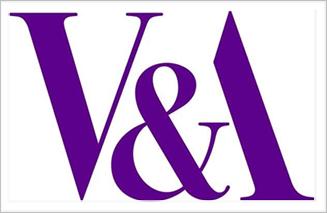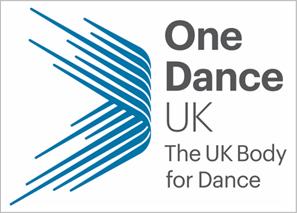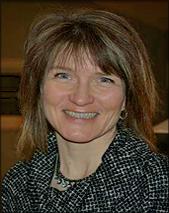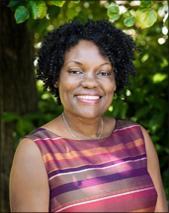Dunham’s Data is funded by the Arts and Humanities Research Council (AHRC AH/R012989/1, 2018-2022), under the direction of Kate Elswit (PI, University of London, Royal Central School of Speech and Drama) and Harmony Bench (CI, The Ohio State University). We are thrilled that our team — Bench, Elswit, Antonio Jimenez-Mavillard, and Tia-Monique Uzor — is recipient of the 2021 Award for Excellence in Digital Theatre and Performance Scholarship jointly given by the Association for Theatre in Higher Education and the American Society for Theatre Research.
Dunham’s Data explores the kinds of questions and problems that make the analysis and visualization of data meaningful for dance history, through the case study of 20th century African American choreographer Katherine Dunham. We manually curate datasets from a large body of undigitized primary source print materials that Dunham herself chose to save, held by seven archives across the United States, which find meaning and expression in tandem with exploratory static and interactive data visualizations. These document the daily itinerary of Dunham’s touring and travel from the 1930s-60s; the over 300 dancers, drummers, and singers who appeared with her; and the shifting configurations of the nearly 300 repertory entities they performed. Together they provide new means to understand the relationships between thousands of locations, and hundreds of performers and pieces across decades of Dunham's performing career, and ultimately elaborate how movement moves across bodies and geographies.
Our team process of intentional data curation, analysis, and visualization is exploratory, iterative, and self-reflexive, guided by a commitment to humanistic scholarly argument. Our essays engage with both the underlying methodologies and the historical insights that emerge. The online project portfolio is designed as a wayfinder to draw connections between multi-modal outputs: datasets, interactive and static visualizations, datasets and user guides, and essays. We are also completing a limited-edition box set that will preserve key outputs in physical form.
Dunham’s Data contributes to understanding how digital humanities can engage intellectual and methodological problems that matter to dance scholars. In turn, we ask how dance might inform interdisciplinary data-driven approaches to evidencing and elaborating embodied knowledge within historical study more broadly. Throughout our research process, we grapple with the dance-based knowledge practices indexed by each datapoint, the embodied intercultural and intergenerational memories of which Dunham’s repertory was composed, and the physical toll of maintaining a transnational career as a Black female performer across many decades. Conversations that began with the Institute for Dunham Technique Certification during Dunham’s Data have evolved into a new project partnership to explore data curation that begins from the dance studio as site for the body-to-body transmission of history. We are also continuing to experiment with the possibilities of a “choreographic syntax” that imbues data visualizations with meaningful motion to better represent dance’s “visceral data.”
Project partners include One Dance UK’s Dance of the African Diaspora and the Victoria & Albert Museum, as well as international knowledge exchange partnerships with digital projects at The Ohio State University (US), Ludwig Maximilians Universität Munich (Germany), and the University of New South Wales (Australia). The datasets associated with Dunham’s Data were acquired by the National Archive for Data on Arts and Culture, and the full website and portfolio were selected for archiving in the Library of Congress’s Performing Arts Web Archive
PEOPLE
Core Project Team

Kate Elswit is an academic and dancer whose research on performing bodies combines dance history, performance studies theory, cultural studies, experimental practice, and technology. She is author of Watching Weimar Dance (Oxford University Press 2014), about the strange things people claimed to see while watching dances in and from the Weimar Republic, which won both the Oscar G. Brockett Book Prize for Dance Research and honorable mention for the Callaway Prize. Her new book is about the interdependence of Theatre & Dance (Palgrave 2018). Further awards and prizes include a postdoctoral Mellon fellowship at Stanford University, the Lilian Karina Research Grant in Dance and Politics, the Gertrude Lippincott Award, and the Biennial Sally Banes Publication Prize. Together with Harmony Bench, her digital work has been funded by a Battelle Engineering, Technology, and Human Affairs (BETHA) Endowment Grant through The Ohio State University, and most recently a project grant from the Arts and Humanities Research Council (AHRC). She is Professor of Performance and Technology and Head of Digital Research at the Royal Central School of Speech and Drama, University of London, and also works as a choreographer, dramaturg, and curator.

Harmony Bench is Associate Professor in the Department of Dance at The Ohio State University, where she is also affiliated faculty with Women’s, Gender, and Sexuality Studies and Translational Data Analytics. Her research addresses practices, performances, and circulations of dance in the contexts of digital and screen media. She is author of Perpetual Motion: Dance, Digital Cultures, and the Common with University of Minnesota Press in 2020. She has also contributed to The Bloomsbury Companion to Dance Studies, Routledge Dance Studies Reader (3rd ed.), The Oxford Handbook of Dance and the Popular Screen, Choreographies of 21st Century War, and Dance on Its Own Terms, as well as Dance Research Journal, The International Journal of Performance Arts and Digital Media, Participations, and Performance Matters, among others. For several years, Harmony has collaborated with Kate Elswit on bringing the digital humanities and dance history into greater dialogue, most recently with Dunham’s Data: Katherine Dunham and Digital Methods for Dance Historical Inquiry (Ref: AH/R012989/1). From 2014-2019, she was co-editor of The International Journal of Screendance with Simon Ellis.

Antonio Jimenez-Mavillard joins Dunham’s Data from the CulturePlex Lab, Western University (Canada). His main research interests lie in the use of data analysis to understand society and culture. He applies methods from the Digital Humanities and Machine Learning to cultural data in order to gain insight into a wide diversity of cultural phenomena. His doctoral work took a computational approach to gastronomic culture, resulting in publications in AI & Society and Digital Studies/Le champ numérique, among others. Additional interests include the application of such approaches to psychology and human behavior, new and social media, storytelling communities, and indigenous peoples, to name a few. His most recent project is at the crossroads between writing and sociology, in which he analyses one million stories from the online storytelling platform Wattpad to examine millennials’ motivations and needs according to their fictional self-expressions in Wattpad stories — this interdisciplinary project aims ultimately to understand modern society’s needs and motivations. Antonio continues to work as Research Assistant at the CulturePlex.

Tia-Monique Uzor is a dance scholar and practitioner. Her research explores themes of identity, cultural traffic, movement, and popular culture within African and African Diasporic dance. She uses postcolonial embodied research methods together with movement analysis to consider the many ways in which dance comments on wider cultural, political and societal issues. Tia-Monique has both presented and taught internationally, and her research is published within collections in the fields of dance, geography and Black feminism. Her AHRC and Midlands4Cities-funded PhD is due to be awarded in February 2020 and she currently sits on the Academic Advisory Committee for Dance of the African Diaspora (DAD) at One Dance UK. Outside of the academy, Tia-Monique writes, choreographs and dances in various contexts.

Takiyah Nur Amin (Ph.D., Temple University) is a dance scholar, educator and consultant. Her research focuses on 20th century American concert dance, African diaspora dance performance/aesthetics and pedagogical issues in dance studies. Her research has appeared in several academic journals including The Black Scholar, Dance Chronicle, Dance Research Journal, the Western Journal of Black Studies and the Journal of Pan-African Studies. Her book chapters have been published or are forthcoming in the edited volumes Jazz Dance: A History of Its Roots and Branches, The Oxford Handbook of Dance and the Popular Screen, Rethinking Dance History and Are You Entertained?: Black Popular Culture in the 21st Century (Duke University Press, 2019.) Dr. Amin is a twice-elected board member of the Congress on Research in Dance (CORD), co-founder of CORD's Diversity Working Group, a founding member of the Collegium for African Diaspora Dance (CADD) and a host on the New Book Network's Dance Channel. An "interdisciplinary humanist," Dr. Amin teaches courses in dance history, Black aesthetics and the sociocultural role of dance in human society. Takiyah Nur Amin is a proud native of Buffalo, NY and is the eldest daughter of Karima and the late Abdul Jalil Amin.
Advisory Board
PARTNERS






One Dance UK, Dance of the African Diaspora
Ludwig Maximilians Universität Munich, Global Theatre History
University of New South Wales and AusStage
RESEARCH BLOG
We gather data from archival sources and leverage existing digital visualization tools to test their capacity for dance historical analysis. We then develop bespoke software components customized for the inquiry of this specific movement-based, multicorporeal project.
Our Research Blog is where we have shared our thinking and doing in progress, as well as reflections from our expert users.
WHERE WE'LL BE
We have had opportunities to share earlier iterations of this research at University of California Berkeley, University of California Riverside, Ludwig Maximilians Universität Munich, the American Society for Theatre Research, the Dance Studies Association, and Dance Fields.
Here are some upcoming events for Dunham’s Data
- April 2026 — Organization of American Historians, Arguing with Big Data in American History, Philadelphia (US)
- March 2026 — Computational Humanities Lecture Series, Kings College London (UK)
- February 2026 — ERC STAGE Project Lecture Series, Université Rennes 2 (France)
- December 2025 — UC Davis AI Center, College of Engineering (US)
- December 2025 — Shanghai Theatre Academy, International Youth Scholar Dance Forum (China)
- July 2025 — Fundación Ramón Areces, Symposium on Emerging Technologies in the GLAM Sector (Spain)
- July 2025 — Association for Theatre in Higher Education, Performing Archival Work (US)
- June 2025 — Dance Studies Association, Washington DC (US)
- March 2025 — Music, Dance, Drama, and Performing Arts Research Group, University of Portsmouth (UK)
- March 2024 — Moving Modernisms, Princeton University (US)
- January 2025 — Archives as Data, Columbia University History Lab (US)
- November 2024 — Quantitative Theory and Methods, Emory University (US)
- November 2024 — American Society for Theatre Research, Seattle (US)
- October 2024 — Shapiro Digital History Seminar, Massachusetts Historical Society (US)
- September 2024 — Dance Research Matters Conference, Coventry University (UK)
- October 2023 — German Society for Dance Research and German Dance Archive Cologne, (Virtual) Ecologies in the Field of Dance (Germany)
- October 2023 — Harvard University, MetaLAB, Data Kinesthetics (US)
- July 2023 — Discovering Collections, Discovering Communities (DCDC) 2023, Radical Reimagining: Interplays of Physical and Virtual (UK)
- June 2023 — University of Birmingham, Stuart Hall / Centre for Contemporary Cultural Studies, Building Global Digital Humanities Projects (UK)
- March 2023 — Freie Universität, Critical Digital Summer School (Germany)
- February 2023 — National Archive of Data on Arts and Culture / ICPSR Love Data Week (US)
- February 2023 — National Dance Education Organization (US)
- December 2022 — UPES School of Liberal Arts, International Conference on Digital Humanities, Dehradun (India)
- November 2022 — Newberry Library, Smith Center for the History of Cartography, Kenneth Nebenzahl Jr. Lectures in the History of Cartography (US)
- October 2022 — Dance Studies Association, Vancouver (Canada)
- July 2022 — DH2022, Association of Digital Humanities Organizations, Tokyo (Japan)
- June 2022 — Movement Computing, Chicago (US)
- May 2022 — DH Unbound 2022, Association for Computers and the Humanities and CSDH/SCHN
- March 2022 — University of Toronto, Institute for Dance Studies / iSchool (Canada)
- February 2022 — Graphs and Networks in the Humanities: Technologies, Models, Analyses, and Visualizations (Netherlands)
- November 2021 — Producing Memory in Dance: Oral History and Mnemotechnics, Université Côte d’Azur and Università Ca’ Foscari Venezia (Italy)
- November 2021 — Temple University, Dance Studies Colloquium, Philadelphia (US)
- November 2021 — Modernist Studies Association, Chicago (US)
- October 2021 — American Society for Theatre Research, San Diego (US)
- October 2021 — Dance Studies Association, New Brunswick (US)
- July 2021 — Association for Computers and the Humanities (US)
- May 2021 — Dance Research Matters, Coventry (UK)
- February 2021 — National Archive of Data on Arts and Culture / ICPSR Love Data Week (US)
- November 2020 — American Society for Theatre Research, New Orleans (US) *postponed due to COVID-19
- November 2020 — What is the Digital Doing? A Workshop in the Interface, Freie Universität, Berlin (Germany)
- September 2020 — Columbia University, Studies in Dance University Seminar, New York (US)
- July 2020 — DH2020, Ottawa (Canada) *cancelled due to COVID-19
- May 2020 — London Theatre Seminar (UK) *cancelled due to COVID-19
- March 2020 — University of Copenhagen (Denmark)
- March 2020 — Humane Infrastructures, UCLA Experimental Humanities (US)
- February 2020 — Collegium on African Diasporic Dance, Durham (US)
- November 2019 — Re:generations, Dance of the African Diaspora / One Dance UK, Salford (UK)
- November 2019 — Distinguished Visiting Scholars Lecture Series, University of Tennessee Humanities Center, Knoxville (US)
- October 2019 — MOCO International Conference on Movement and Computing, Tempe (US)
- July 2019 — Association for Computers and the Humanities, Pittsburgh (US)
- March 2019 — Current Research in Digital History symposium, Arlington (US)
- October 2018 — Intentionally Digital, Intentionally Black conference, University of Maryland (US)
- October 2018 — Making Change Through the Humanities, Royal Institute of Technology, Stockholm (Sweden)
- July 2018 — International Federation for Theatre Research, working group on Digital Humanities in Theatre Research, Belgrade (Serbia)












